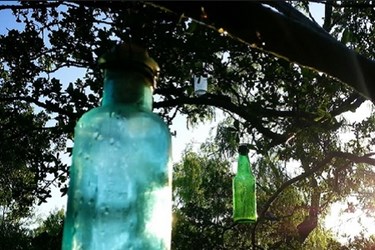Coca-Cola Unveils Beverage Packaging Made Entirely From Plant Materials
By Isaac Fletcher, contributing writer, Food Online

With a growing awareness about the environmental impacts of packaging, Coca-Cola’s continued efforts toward sustainable packaging have culminated in the creation of the PlantBottle.
After a long period of research and development, Coca-Cola has unveiled the world’s first fully plant-based PET plastic bottle. The bottle, which is made entirely from renewable plant materials, was revealed at the World Expo - Milan on June 3rd, 2015. The successful production of the PlantBottle is a significant step in sustainable innovation and extends the boundaries of what can be accomplished within the realm of environmentally-friendly packaging.
Made from recyclable and renewable plant materials instead of fossil fuels and other non-renewable materials, the PlantBottle is an important achievement in the company’s ongoing efforts to enhance its sustainability and lessen its environmental impact. The packaging is created using technology that converts the natural sugars present in plants into the ingredients used to make PET plastic. Functionally and visually, the PlantBottle is essentially identical to traditional PET bottles, but makes better use of resources and leaves a much lighter environmental footprint.
Related: What’s Happening With Bioplastics In Food And Beverage Packaging?
“Today is a pioneering milestone within our company’s packaging portfolio,” says Nancy Quan, Global Research and Development Officer for The Coca-Cola Company. “Our vision was to maximize game-changing technology, using responsibly sourced plant-based materials to create the globe’s first fully recyclable PET plastic bottle made entirely from renewable materials.”
The PlantBottle delivers the same quality as traditional plastic bottles and can be used in a variety of sizes and product applications, including water, sparkling beverages, juices, and teas. The current materials of choice for producing the plant-based packaging are sugarcane and waste from the sugarcane manufacturing process.
Since the date of its 2009 launch, Coca-Cola has distributed more than 35 billion bottles across nearly 40 countries using the current version of the PlantBottle, up to 30 percent of which is made from plant-based materials. The use of plant-based packaging has helped to prevent more than 315,000 metric tons of annual carbon emissions since its launch. The company aims to continue its efforts in sustainable and renewable packaging.
